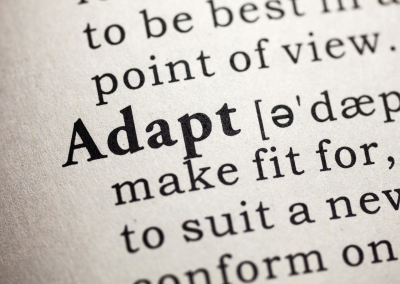A current weakness of most gamified systems concerns their capability of retaining users in the medium to long term.
This is due to the fact that, very often, these systems use basic game elements – i.e., points, badges and leaderboards – and implement extremely simplified game dynamics. Taking full advantage of the potential of gamification and amplifying its impact, in terms of involvement and change of behavior, requires acting on two fronts. The first concerns a system design centered on the users’ gaming experience, providing them an engaging playful adventure, that combines complex game elements and dynamics in a powerful and compelling narrative. The second front concerns the ability to provide the user with a dynamic and highly personalized gaming experience, which takes into account the fact that the motivational levers, which guide our decisions and actions, are absolutely personal.
On this second front, Artificial Intelligence can play a decisive role and the MoDiS Unit aims at investigating AI techniques for adaptive gamification and personalized feedback:
-
Churn Prediction– identify participants at risk of abandonment, predicting a possible exit from the game with the aim of trying to recapture their interest;
-
Dynamic Difficulty Adjustment – carefully calibrate, especially in challenges and missions, the commitment required to the user to his real abilities, keeping him in a state of “flow” and avoiding making the gaming experience too frustrating or too boring;
-
Dynamic Reward Computation – make sure that the prize, virtual or real, associated with the challenges or missions, is calibrated to the actual commitment required to the individual player;
-
Procedural Content Generation – observe the user behavior over time and generate personalized content, taking advantage of those game elements that have proven to be most motivating and effective.
RELEVANT PUBLICATIONS
- Kazhamiakin, Raman; Loria, Enrica; Marconi, Annapaola; Scanagatta, Mauro, A Gamification Platform to Analyze and Influence Citizens’ Daily Transportation Choices, in «IEEE TRANSACTIONS ON INTELLIGENT TRANSPORTATION SYSTEMS», 2021, pp. 1-15
- Loria, Enrica; Marconi, Annapaola, Exploiting limited players’ behavioral data to predict churn in gamification, in Electronic Commerce Research and Applications, v. 47, 2021
- Scanagatta, Mauro; Marconi, Annapaola; Deppieri, Giulia; Ferron, Michela, Calibration of Game Dynamics for a More Even Multi-Player Experience, Proocedings of the 25th annual conference on Intelligent User Interfaces (IUI 2020), 2020, pp. 443-453
- Khoshkangini, Reza; Valetto, Giuseppe; Marconi, Annapaola; Pistore, Marco, Automatic generation and recommendation of personalized challenges for gamification, in «USER MODELING AND USER-ADAPTED INTERACTION», 2020
- Loria, Enrica; Paissan, Francesco; Marconi, Annapaola, Exploiting General-Purpose In-Game Behaviours to Predict Players Churn in Gameful Systems, Game Analytics Workshop 2019, 2019
- Khoshkangini, Reza; Valetto, Giuseppe; Marconi, Annapaola, Generating Personalized Challenges to Enhance the Persuasive Power of Gamification, Proceedings of the Second International Workshop on Personalization in Persuasive Technology co-located with the 12th International Conference on Persuasive Technology, 2017
- Khoshkangini, Reza; Marconi, Annapaola; Valetto, Giuseppe, Machine Learning for Personalized Challenges in a Gamified Sustainable Mobility Scenario, Proceedings of the Annual Symposium on Computer-Human Interaction in Play, ACM, 2017, pp. 361-368
- Kazhamiakin, Raman; Marconi, Annapaola; Martinelli, Alberto; Pistore, Marco; Valetto, Giuseppe, A gamification framework for the long-term engagement of smart citizens, Proceedings of the 2nd IEEE International Smart Cities Conference, IEEE, 2016, pp. 1-7





